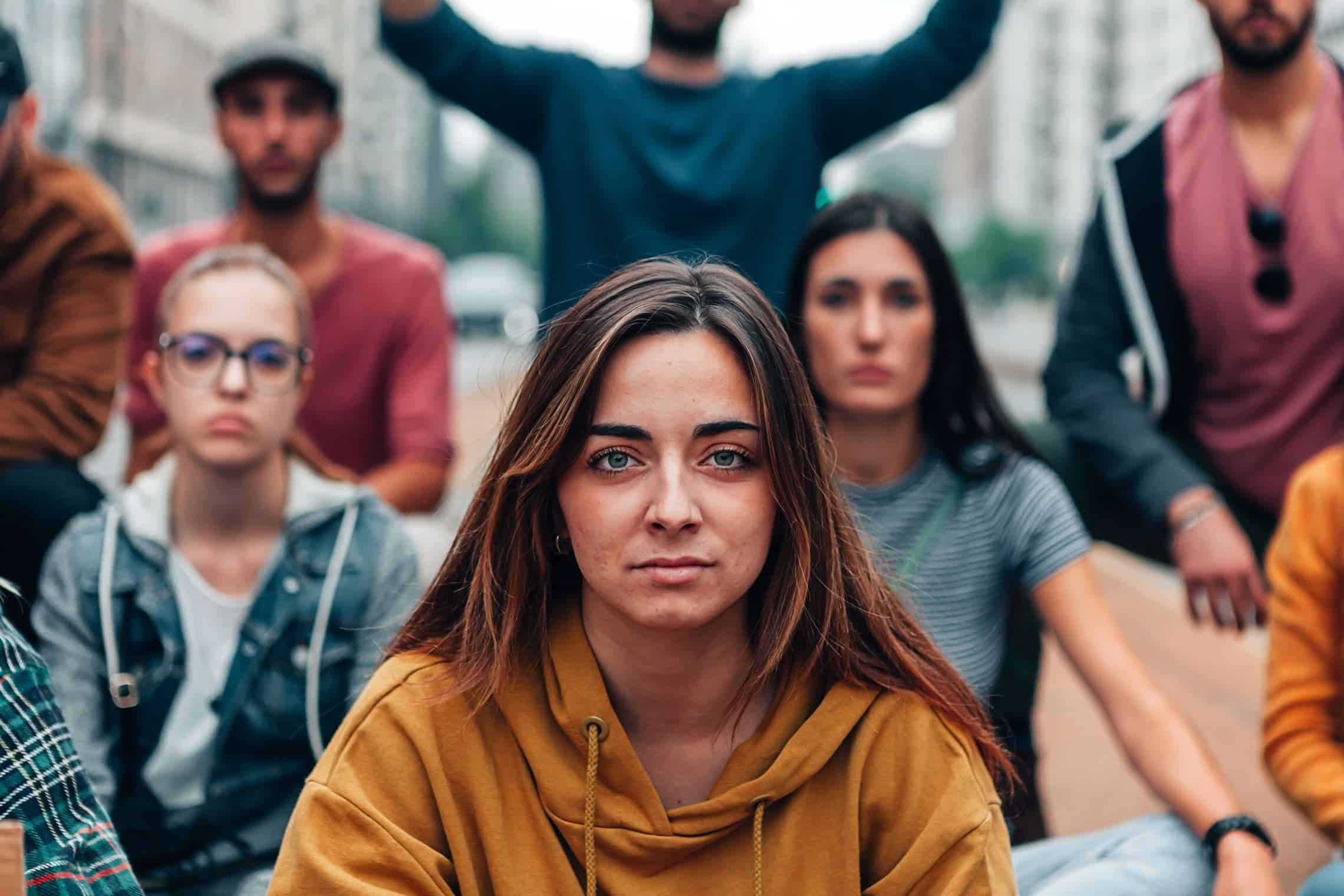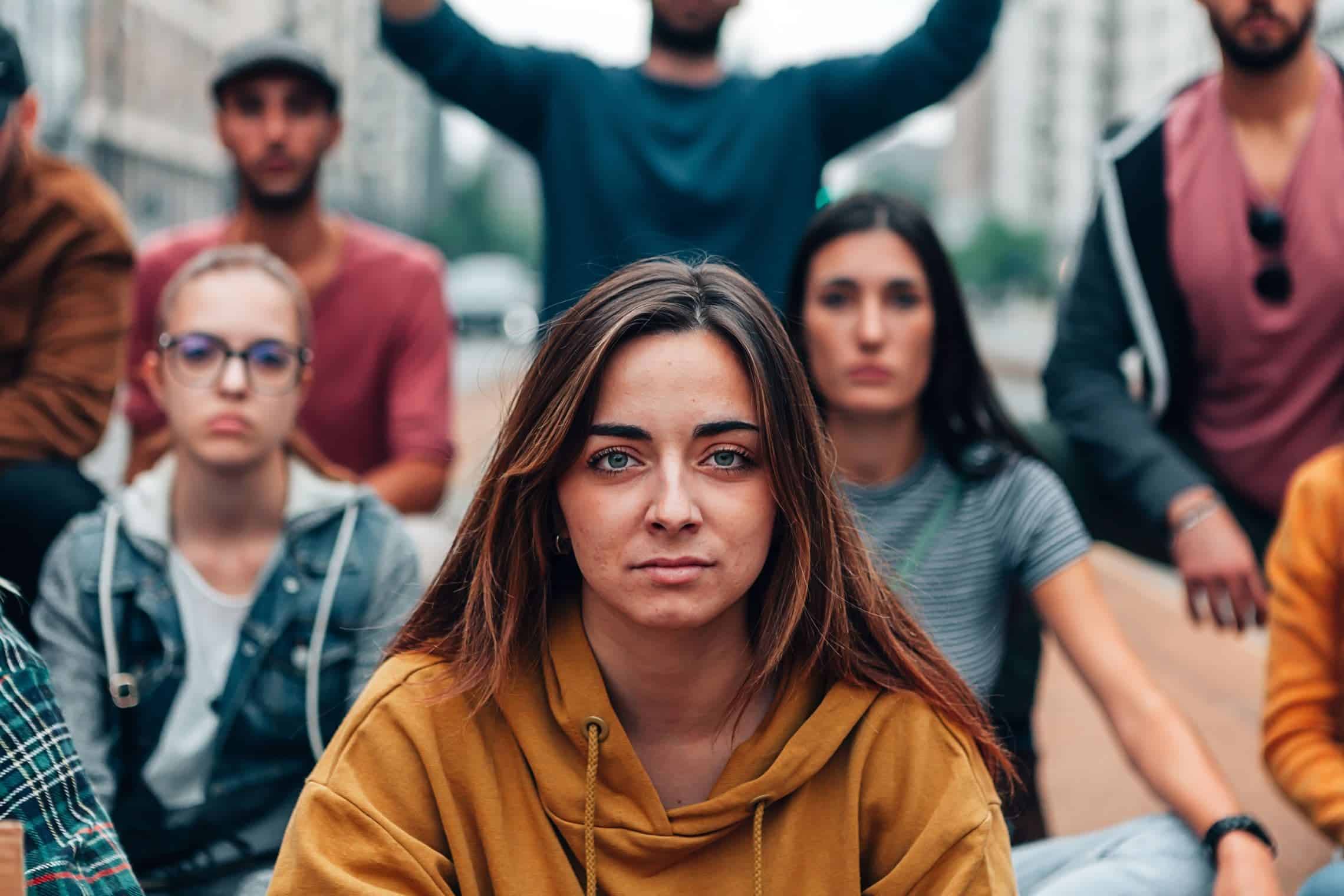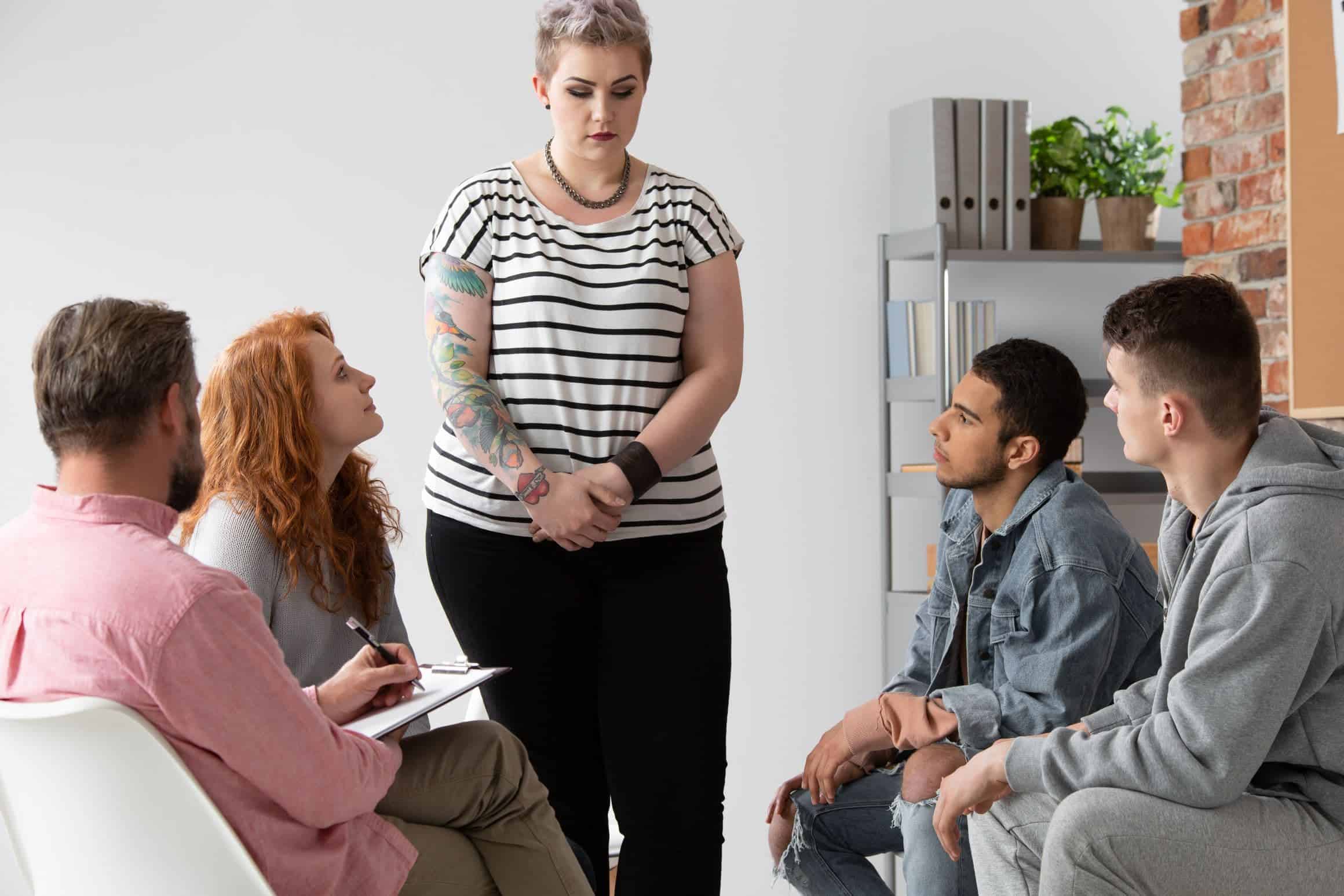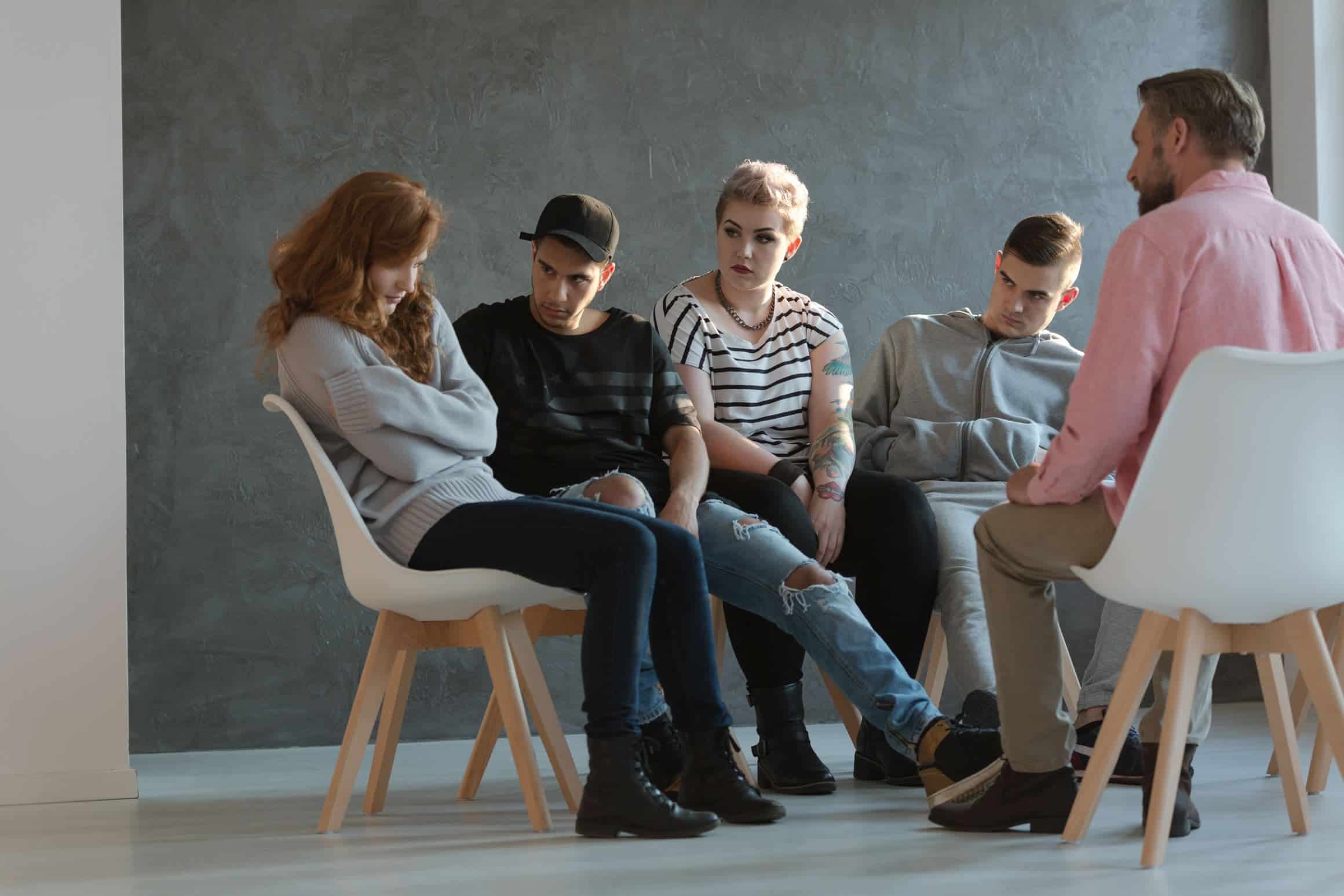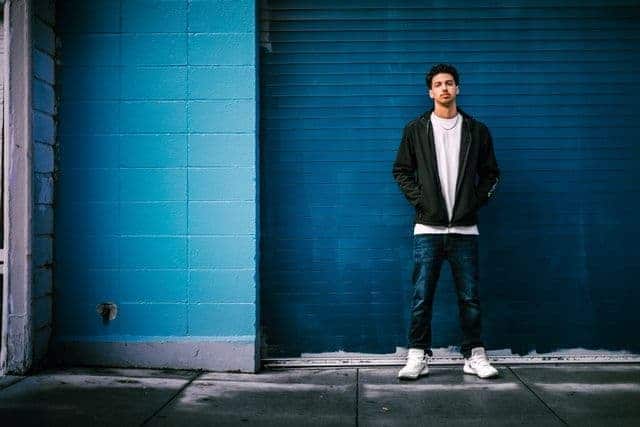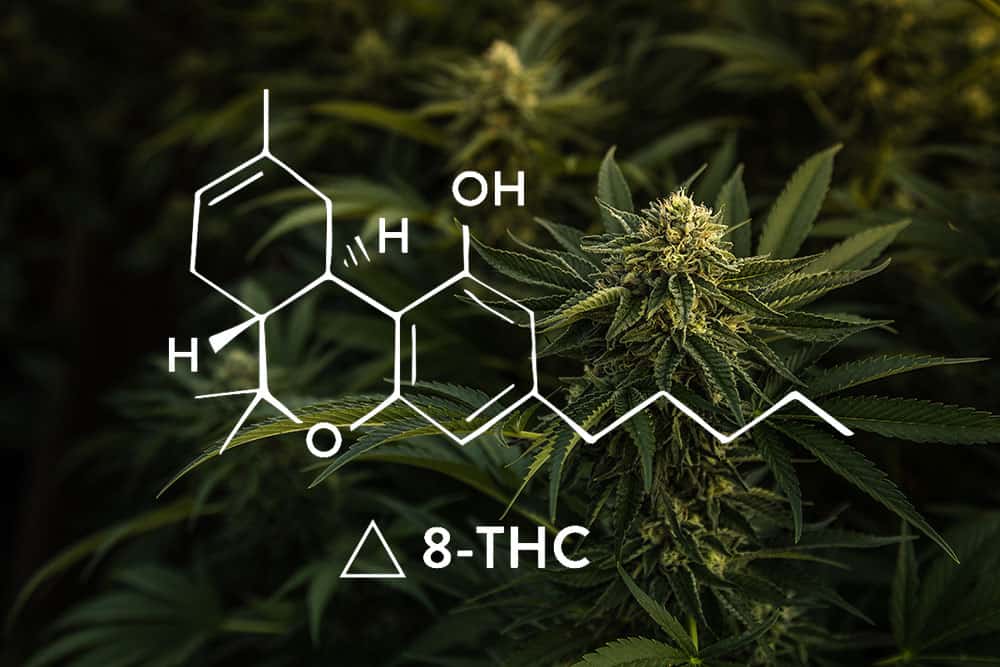Table of Contents
- What Are Adolescent Treatment Centers?
- What Is An Adolescent Residential Treatment Center (RTC)?
- What Is Adolescent Day Treatment?
- What Are Adolescent Intensive Outpatient Programs (IOPs)?
- What Are Common Misconceptions About Adolescent Treatment Programs?
- How Much Does Adolescent Treatment Cost?
- What Is The Best Treatment Option For Troubled Youth?
What Are Adolescent Treatment Centers?
Adolescent treatment centers help young people learn to manage significant behavioral and emotional issues as they enter adulthood.
Adolescence is the period of life that occurs after childhood and before adulthood. Both teens and young adults can be considered adolescents due to their physical development and the age of taking on traditional adult responsibilities.
The period of adolescence can be flexible to meet the lifestyles of a specific time and culture.
According to a 2018 article in The Lancet Child and Adolescent Health, “[A] definition of 10-24 years corresponds more closely to adolescent growth and popular understandings of this life phase.”
Adolescence is generally defined by meeting specific development milestones and fulfilling certain social expectations. Many children enter puberty at younger ages, while young adults live at home longer. The definition of adolescence adjusts to these changes.
Young people encounter many challenges on their way to adulthood.
Teens and young adults today face significant stressors in their daily lives. They deal with peer pressure, make decisions about their futures, and struggle to meet society’s expectations. Adolescence can impact the course of your entire life.
Some adolescents struggle with substance use and mental health disorders, negatively affecting them as adults when left untreated.
While some teens and young adults will get through adolescence with a clear future ahead of them, others might struggle through this crucial period of development. They might develop maladaptive coping mechanisms to deal with everyday stressors.
Adolescent treatment centers can help young people get back on track when they start to stumble.
Treatment centers provide several options to help with the challenges of adolescence, especially for young people with mental health and substance use disorders. Programs can meet the specific needs of young people entering adulthood.
Young adult and teen treatment centers focus on helping your child deal with significant challenges. Sometimes, young people struggle as a natural part of growing up. However, at other times, they need additional support from clinicians and professionals.
Adolescent treatment centers can help your child by offering the following:
- Connecting with peers who also struggle
- Repairing family relationships
- Dealing with personal issues such as:
- Low self-esteem
- Mental illness
- Substance abuse
- Eating disorders
- Academic and vocational support
- Finding meaning and value in life
Many adolescent treatment centers address co-occurring disorders of mental health and substance abuse. Often, it is rare that one condition exists without the other present, especially among young people.
What Is An Adolescent Residential Treatment Center (RTC)?
An adolescent residential treatment center (RTC) is an inpatient program for teens and young adults with mental health and substance use disorders.
Residential programs are best for young people who need intense supervision to get better. RTCs are inpatient programs, meaning that you would stay overnight while in treatment. These programs can last about 30 to 90 days.
RTCs offer many treatment options for young people with structure and 24/7 staffing support. After drug and alcohol detox or stabilization services from a hospital, you can step down in level of care to an RTC.
Residential treatment could be the best option if the following apply to you:
- You have a dual diagnosis of substance use and mental health disorder
- Safety concerns, like suicidal behaviors and self-harm
- Your home or community is not supportive of your recovery
- Lower levels of care, like outpatient treatment, have not been effective
- You have a court mandate to seek treatment
- You have tried all other treatment options with little or no results
- To treat issues that require intensive support, such as:
- Addiction
- Eating disorders
- Severe mental health disorders, like:
- Bipolar disorder
- Schizophrenia
- Borderline personality disorder
One barrier to treatment is the fear of getting left behind in school, social life, or your career. In RTCs, you get a comprehensive treatment program that focuses on all aspects of your life.
RTCs offer support for your overall health and wellness. Many of these programs provide treatment for the “whole person.” Mental health and addiction affect you in many areas of life. You need to get professional help while getting your life back on track.
The benefits of RTCs for young people include:
- Home-like atmosphere, unlike psychiatric hospitalizations
- Academic and vocational support
- Experiential therapy, like:
- Art and music
- Outdoor exploration
- Animal-assisted therapy (AAT)
- Holistic treatment approaches such as:
- Yoga
- Mindfulness
- Meditation
- Nutritional counseling
- Exercise
- Individual therapy sessions
- Group support with like-minded peers
- Build confidence and self-esteem
- Social skills training
While RTCs are among the highest level of care, you can step down in services after you complete your program. You can also try a lower level of care if you don’t need the intensive services of an inpatient program.
What Is Adolescent Day Treatment?
Adolescent day treatment is also known as a partial hospitalization program (PHP) and is a step-down in services from an RTC.
Day treatment programs are the next level of care following inpatient programs. You might get a referral from a hospital for day treatment. You are in a program for daytime hours during day treatment, usually four to five days a week.
These programs help adolescents and troubled youth who struggle with school or work. You might go into a day treatment program instead of returning to school if you have intensive behavioral health needs.
Adolescent day treatment programs can help with the following issues:
- Emotional and mental health issues that create problems in learning
- Need for counseling and support during school hours
- Difficulty at school due to attention-deficit/hyperactivity disorder (ADHD) or autism spectrum disorder (ASD)
- Severe anxiety disorders that create significant issues during regular school
- History of trauma or adverse childhood experiences
- Students who need focused attention from teachers and learning aides
- Consistently being held back due to emotional or behavioral issues
- Young people who are bullied at regular school due to underlying mental health issues or being in the LGBTQ+ community
Teachers in a regular school might not have the training or ability to provide focused support to kids in need. Adolescent day treatment programs are staffed by mental health clinicians, teachers, and aides trained to provide behavioral and emotional support.
Untreated mental health issues can lead to poor outcomes in school, and day treatment programs can help you reach your full potential.
Day treatment centers could help you catch up to your peers during part of the school year or summer. These programs usually focus on academics with social skills and emotional regulation built into the curriculum.
You might get adolescent day treatment to focus on one particular issue and then get back to your regular school. If you still need intensive treatment, you could step down to intensive outpatient programs (IOPs).
What Are Adolescent Intensive Outpatient Programs (IOPs)?
Adolescent intensive outpatient programs (IOPs) offer intensive treatment services like day treatment or PHP, except you continue with your regular schedule.
You might need support after school or work as you transition out of day treatment or an inpatient program. At an IOP, you get treatment for about three to five hours per day, usually three to four days per week.
IOP programs for adolescents provide treatment while including life skills development with academic and vocational support. Unlike RTCs, you can continue with your everyday life while getting intensive support.
IOPs are the highest level of care you can get that works around your schedule. Most IOPs operate during the evening so that you can resume school and work during your day while getting treatment at night. Virtual IOP can expand access to services for many in need.
Intensive outpatient programs generally provide the following services:
- A daily check-in with a therapist or other mental health professional
- A mix of group therapy and individual counseling
- Academic support to keep you on track with your homework
- Focus on goals outside of treatment, like school, work, and finding meaningful activities
IOPs allow you to get treatment without interrupting your daily life. If you are safe and stable in your home and community, you can benefit from this level of care. IOP is best for those who have received stabilization services, detox, or residential treatment.
What Are Common Misconceptions About Adolescent Treatment Programs?
There are common misconceptions about adolescent treatment programs that might be a barrier to those in need of treatment.
Negative stigma about mental and behavioral health issues often causes shame and guilt among those who struggle. You and your family might believe that no one else has the same problems, which could be alienating you from finding support.
The following are common misconceptions about adolescent treatment programs:
- Kids in substance use or mental health treatment are just “bad kids”
- Disciplinary issues or poor academic performance is most often the result of underlying issues that can be treated
- Adolescents in treatment often have a history of trauma, which causes significant emotional issues that affect how well they do in school
- Parents are to blame for their child’s mental and behavioral health
- Mental health disorders have both environmental and genetic causes, meaning that some people are predisposed to these issues at birth
- While parents play a critical role in ensuring their child’s health and safety, blaming parents for their child’s behavioral health is not constructive or helpful
- Instead, finding treatment programs with family involvement and parental support can help the entire family heal
- Psychiatric medications are the only way to cure kids with problems
- While medications can be a critical part of your treatment plan, medications alone are not enough, and they won’t “cure” mental health problems
- Comprehensive treatment plans include multiple ways to get better and live the life you deserve
- Medications can help with severe mental health issues or learning disabilities, like bipolar disorder or ADHD, but you still need additional support from traditional and holistic treatment modalities
- Kids with mental health issues are violent and threatening
- One of the most common negative stereotypes about those with mental health problems is that they could be unpredictable or violent
- However, according to the U.S. Department of Health and Human Services (HHS), “[P]eople with severe mental illnesses are over 10 times more likely to be victims of violent crime than the general population.”
- Adolescents with mental health issues might have problems with impulse control or managing anger; however, they can learn coping skills during treatment
- Mental health issues are just a cry for attention, and kids can just “snap out of it”
- Behavioral problems are often mislabeled as a manipulative way that kids get attention
- While kids with mental health issues might need additional support and attention, they are not acting out or faking their symptoms for attention
- People with mental illnesses can’t just “snap out of it”; they need therapy and coping skills to treat their symptoms
- Kids with addiction and mental illness will never get better
- Harmful words like “once an addict, always an addict” create unfair perceptions of those who struggle
- With therapy, peer support, family involvement, and life skills training, adolescents can overcome their issues to lead healthy and productive lives
If your child struggles with problematic behaviors at home or during school, they could benefit from adolescent treatment. These programs help kids who might feel alienated from their peers in regular school and the community.
Untreated teen mental health and substance use disorders can lead to worsening conditions throughout adulthood.
According to MedlinePlus, “The earlier young people start using drugs, the greater their chances of continuing to use them and become addicted later in life.” Early interventions will help you stay healthy throughout your life.
Co-occurring disorders of mental illness and addiction are common. Usually, the presence of one condition is a warning sign or risk factor of the other. Untreated issues can lead to poor health and wellness outcomes throughout life.
How Much Does Adolescent Treatment Cost?
Adolescent treatment can vary in cost, depending upon the level of support that you need.
Depending on what type of program you need, the costs will differ. For inpatient or residential treatment, you need 24/7 staffing, which can become costly. Outpatient services are generally less expensive, as you don’t need to account for housing, staff, and food.
Most insurance carriers cover inpatient and residential treatment services.
Substance use and mental health treatment are considered essential under the Affordable Care Act (ACA). Your insurance might cover most or all of the costs for your treatment.
Many treatment facilities offer scholarships and financial aid to help cover any additional out-of-pocket expenses that insurance doesn’t cover. You might qualify for payment plans or funding from other sources to help offset the costs.
When considering mental health and substance use treatment, you also need to consider the costs of not getting treatment.
Behavioral health issues can lead to poor outcomes at work, physical health problems, or legal troubles, which can be much more expensive in the long term.
What Is The Best Treatment Option For Troubled Youth?
The best treatment option for troubled youth includes comprehensive plans with multiple levels of care to meet your specific needs.
Treating adolescents with mental illness, addiction, and problematic behaviors requires a provider able to meet all of your needs. You want to find a program with trained clinicians, multiple treatment approaches, and an appropriate level of care that matches your needs.
When looking for a program for adolescents, consider the following to find the best treatment:
- Teen treatment centers can vary in terms of licensing and accreditation
- Not all programs require licensing from the state, which means that they might not offer what they claim
- Some states also accept licensing requirements from trusted accreditation sources, like The Joint Commission (JCAHO)
- These programs must adhere to high standards of care and treatment outcomes to qualify for licensing and accreditation
- Dual diagnosis treatment for mental health and substance abuse
- If you struggle with addiction, you most likely have an underlying mental health disorder driving your substance abuse
- Dual diagnosis treatment can help you uncover the underlying issues at the root of your addiction
- An emphasis on family involvement
- Issues with one family member often impact the lives of everyone within the household
- By involving your family in treatment, you can resolve conflicts and build a healthy home environment for your continued recovery
- Family therapy can help you and your loved ones improve outcomes for everyone involved
- Multiple levels of care to continue treatment without changing providers
- When you need to go from one program to the next, you might feel like you are starting over with all new staff and clinicians
- Many treatment providers offer a range of care options, from inpatient services and detox to outpatient programs and aftercare
- You can step down from higher levels of care to lower ones without transferring facilities
- Qualified clinicians who offer multiple treatment modalities
- Depending upon your symptoms and diagnosis, you could benefit from one type of therapy more than another
- Look for treatment centers that provide evidence-based treatment modalities to target your specific needs
- Common treatment modalities include:
- Due to the high prevalence of mental health and substance abuse among LGBTQ+ youth, many treatment centers offer specialized services for young people in this group
Each person has specific treatment needs. Facilities with choices about treatment can help you manage your issues and get back on track. If you are concerned about an adolescent in your life, contact treatment facilities today to learn more about how to help.
Adolescent treatment programs can help young people get back on track while getting help for behavioral and emotional health issues. Sandstone Care is here to support teens and young adults with substance use and mental health disorders. Call (888) 850-1890.

